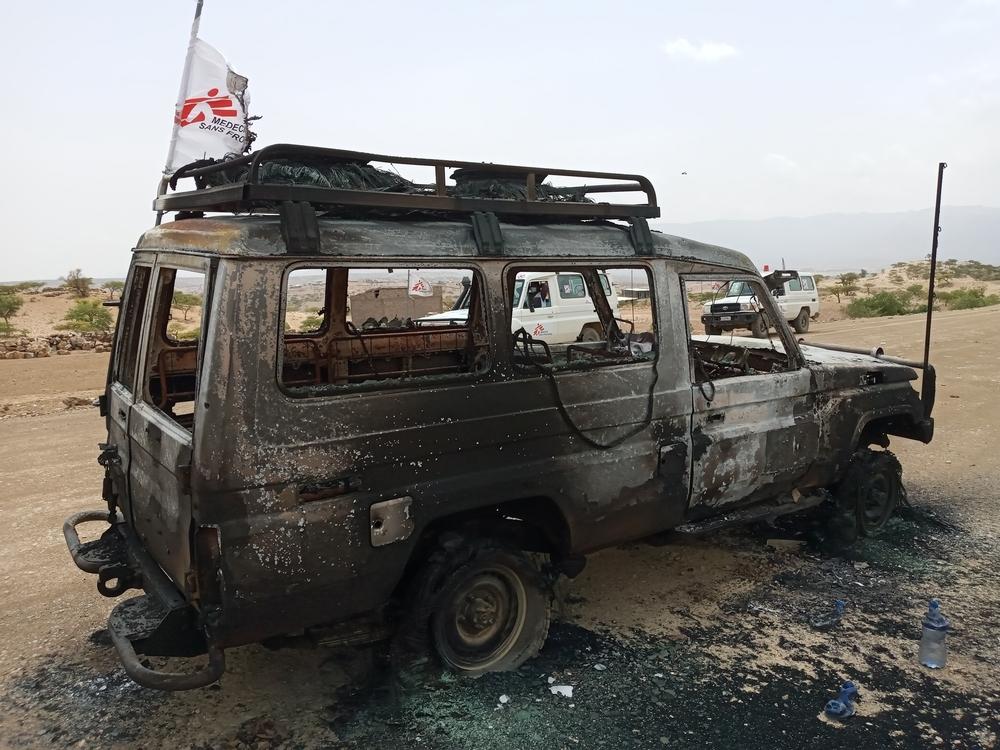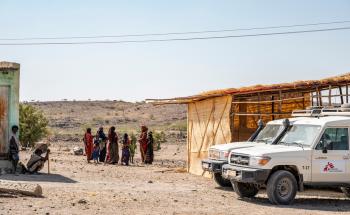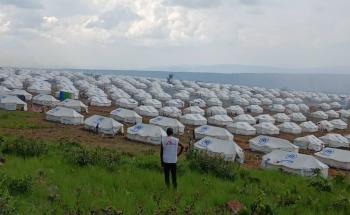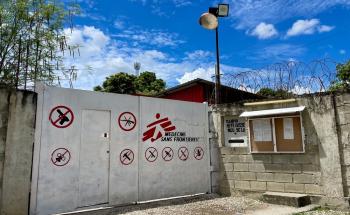- Four years on since the brutal killing of our colleagues in Tigray, Ethiopia, MSF is releasing the findings of our own internal review.
- Our findings show that the attack on María Hernández Matas, Tedros Gebremariam Gebremichael, and Yohannes Halefom Reda was the intentional and targeted killing of clearly identified aid workers.
- MSF has requested a formal and transparent investigation to be carried out by the Ethiopian authorities many times since their killing in June 2021.
Doctors Without Borders (MSF) has published the findings of an internal review into the brutal killing of three of its staff members — María Hernández Matas, Tedros Gebremariam Gebremichael, and Yohannes Halefom Reda — in central Tigray, Ethiopia, on 24 June 2021.
The review confirmed that the attack was an intentional and targeted killing of three clearly identified aid workers. It also established that a convoy of Ethiopian National Defense Forces (ENDF) was present at the time of the incident, on the same road where the MSF personnel were killed.

Four years on, MSF still does not have credible answers about what happened to its team members, despite tireless attempts to engage with both the Federal Democratic Republic of Ethiopia (FDRE) and the Tigray People’s Liberation Front (TPLF) — both of whose forces were present in the wider conflict zone.
“Despite repeated assurances from the Ethiopian authorities that an investigation was underway, four years on, neither MSF nor the victims’ families have received any credible answers. We can only assume that there is insufficient political will to share the findings of a completed investigation,” says Paula Gil, President of MSF Spain.
“In the absence of any official account, we have a moral obligation towards our staff and the families of our late colleagues to make our own findings public – a necessary step to shed light on a brutal killing that must not be ignored or buried,” says Gil.
Immediately after the incident, MSF launched an internal review – its standard practice following a critical security incident. The evidence confirmed that the attack on the MSF team was intentional and targeted. The victims — all wearing white vests clearly marked with the MSF logo and travelling in a vehicle visibly displaying the MSF logo and flag — were shot multiple times at close range, while facing their attacker. Their bodies were found up to 400 metres from their vehicle, which was burned and riddled with bullets.
María, Tedros, and Yohannes lost their lives while helping people in crisis. They are in our thoughts every day. Their murder must not be forgotten or met with silence.Paula Gil, President of MSF Spain.
“This was not the result of crossfire, nor was it a tragic mistake. Our colleagues were killed in what can only be described as a deliberate attack,” adds Gil.
MSF’s internal review also clearly established that a large retreating convoy of the ENDF was moving south on the same stretch of road where MSF’s staff members were killed on the day of the attack. This was corroborated by multiple sources available in the public domain, including media reports and open-source satellite imagery, as well as several civilian witnesses.
Beyond the confirmed presence of the ENDF in the area, what remains to be clarified is the extent and nature of their involvement in the attack. MSF received concerning witness accounts — including from civilians travelling with the ENDF convoy in various capacities — that directly implicated ENDF soldiers in the attack. One witness reported overhearing a radio exchange where an ENDF commander gave orders to “shoot” at an approaching white car and “remove them”.

Since 2021, MSF has held over 20 high-level meetings with officials in the Ethiopian government and submitted numerous formal requests for a credible, transparent investigation to be carried out and for findings to be shared.
“Over the past four years, we have done everything in our power to engage constructively with the Ethiopian authorities, including sharing the findings of our internal review on several occasions between November 2021 and October 2023, along with supporting materials, with the Ministry of Justice,” says Gil.
“MSF’s review clearly demonstrates that it was — and remains — feasible to establish the facts about the incident. Given this, and the substantiated information confirming ENDF presence at the time of the attack, it is both unconscionable and unacceptable that the Ethiopian authorities have consistently failed to conclude a credible investigation and share its findings,” says Gil.
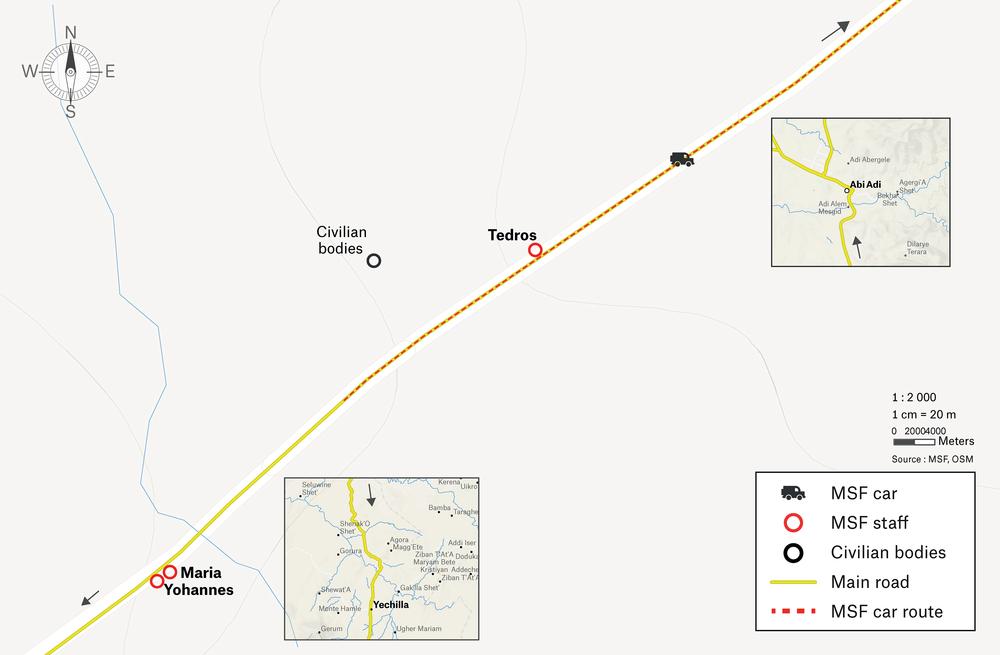
MSF is making this internal review public not only out of moral obligation, but also to demand that governments protect humanitarian workers and medical facilities and that those responsible for attacks on humanitarians and medical staff are held accountable. Attacks on humanitarian personnel are rising globally, while states increasingly neglect their duty to investigate and prosecute violations of international humanitarian law, and the international community continues to look away.
The brutal killing of María, Tedros, and Yohannes is an emblematic case of the dangers faced by humanitarian workers. If there is no investigation of such an egregious attack, it sets a dangerous precedent in Ethiopia and reinforces an alarming pattern of impunity for attacks on healthcare globally.
“María, Tedros, and Yohannes lost their lives while helping people in crisis. They are in our thoughts every day. Their murder must not be forgotten or met with silence. MSF hopes that by pursuing the truth of what happened to them, we can contribute to building a safer environment for humanitarians — not only in Ethiopia, but in conflict zones around the world,” says Gil.
